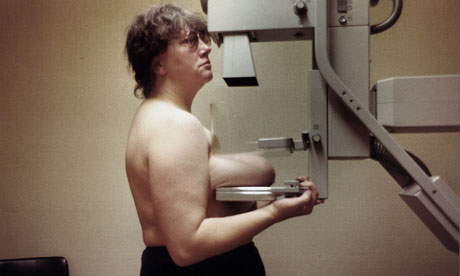Here i have found another photographer actively dealing with themes of family and breaking the conventions of family album photography. I have included the most obvious series fitting to my work " beyond the family album" but i have also below that included an artical from the guardian online on another series she created dealing with her diagnosis of breast cancer, " The picture of health" in 1982. Again she is breaking convention by documenting the things that are usually banished form the cherished family photo album .Her work is gritty ,disturbing but true to life.
JO SPENCE- Phototherapy
Spence identified popular photography as the complex site of ideological negotiation between family, class, gender and social life. She emphasised the need for a 'counter-photography' of the family, one that breaks with the strict conventions of popular photography, to portray a more realistic representation of family life. She critiqued how most family photography is reduced to a limited set of typifying narratives and how much of what constitutes family life remains undocumented. She advocated collaboration between participants, willing to engage with questions of sexuality and family relations.
jo Spence's work on extending the categories of the family album continues to function as a stimulating and practical model for thinking about what photographs do. Her project becomes more complicated when considered in relation to media trends of confessional display as entertainment and sensationalised depictions of dysfunctional family relations displayed in contemporary art galleries. However, even in a context of capitalist appropriation of art into entertainment, her contribution can be valued as an intervention into everyday social practice and as a tool-kit for understanding and critiquing representational and media conventions.



The guardian
http://www.theguardian.com/artanddesign/2012/jul/19/artist-of-week-199-jo-spence
Artist of the week 199: Jo Spence
Housewives were desperate and family life far from domestic bliss for photographer whose work explores identity politics

Jo Spence before a mammogram in a photograph from The Picture of Health series. Photograph: Studio Voltaire
Even when she was playing dressing-up games for the camera, the lateJo Spence's photography was raw as a scraped shin. In some works, she flirts with sexual cliches, posing with a vacuum cleaner pipe curled around her fishnet-clad legs, like a phallic ball and chain.
Mostly though, it's gritty stuff. Acting the hollowed-out mother, she fixes us with a glazed stare, nude but for a floral pinny and holding up a dish that says "Love" in felt-tip pen. Even more unsettling is seeing her crying, naked and clutching a grubby teddy like a little girl.
Throughout the 1970s and 80s, Spence sought to expose photographic stereotypes of family life, sex and class. Our picture perfect fantasy of ourselves was something she knew well. Born to London factory workers in 1932, she was sent to secretarial college at 13 before she landed a job as a bookkeeper and typist with a photographer in the 1950s. After taking a Kodak training course, she opened her own studio in the 1960s to do actors' portraits, wedding and passport photos.
By 1978, Spence had left commercial photography behind and was upending traditional shots of smiling couples and radiant new mothers with Beyond The Family Album. Posing as browbeaten housewives or traumatised children, she explored a domestic reality punctuated not by the get-togethers photos normally recorded, but by abuse, rows and workaday grind. In the intervening decade, she had focused on documentary photos with a socialist, feminist bent, founding projects such as the wonderfully named Hackney Flashers – a collective of women taking the camera back from photography's boy's club.
Spence was a true innovator: she was one of the first artists to exploreidentity politics through role-play and photography; Cindy Sherman andGillian Wearing would adopt similar strategies. Undoubtedly, her most heroic work was The Picture of Health, in 1982, which she began after being diagnosed with breast cancer. This series of self-portraits is both alternative therapy and a critical response to modern medicine, with Spence regaining ownership of her body by documenting her treatment.
In all of her work, Spence confronted us with the things society tries to conceal – not least women's unconventional physiques. In The Picture of Health she upped the ante, bringing disease into the frame. In one bare-chested photo, she stands before a mammogram, her breast laid out between its slabs like a separate entity. Later, she poses in a biker's helmet, holding up her arms to reveal battle scars.
Spence survived breast cancer, preferring Chinese medicine to more aggressive treatment. It's incredibly sad that she then died of leukaemia in 1992, though she continued creating her playful, defiant photos until the end.
No comments:
Post a Comment